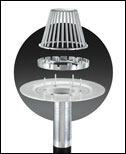Despite pleas for immediate action by NRCA and other business groups, Congress recessed in September in advance of the Nov. 6 elections without resolving the impasse over major tax increases scheduled to take effect in 2013. At press time, Congress has entered into a lame-duck session that likely will continue through this month. How Congress and President Obama address urgent tax policy issues during this lame-duck session could substantially affect the U.S. economy.
Approaching expiration dates
On Jan. 1, 2013, tax rates on individual incomes, capital gains and dividends that were enacted in 2001 and 2003 and extended for two years in December 2010, are scheduled to expire. Under this scenario, all income tax rates will increase; the 15 percent rate on dividends will be taxed at regular income rates; and the capital gains rate will increase from 15 to 20 percent. In addition, the estate tax is scheduled to increase from 35 percent to its pre-2001 level of 55 percent, with the exemption falling from $5 million to $1 million. And that's not all.
The employee payroll tax cut first enacted in 2011 and extended through 2012 also is scheduled to expire. The Alternative Minimum Tax also will affect more taxpayers in 2013 unless Congress approves legislation to limit its expansion as it has done numerous times in recent years. Another area of tax policy that needs urgent attention is a series of tax credits and deductions, many of which are used by employers to reduce their tax liability, that either expired at the end of 2011 or are set to expire at the end of 2012.
The nonpartisan Congressional Budget Office (CBO) has estimated the expiration of all current tax rates will collectively raise taxes by more than $500 billion in 2013. Furthermore, CBO predicts such a massive tax increase, combined with about $110 billion in spending cuts scheduled to begin Jan. 2, 2013, is likely to tip the U.S. economy into recession.
NRCA has been advocating for low tax rates for years and most recently has worked with a coalition of business groups to urge Congress to take immediate action to extend all existing tax rates for one year to avoid massive tax increases Jan. 1, 2013. NRCA has urged Congress to undertake fundamental tax reform that lowers corporate and individual tax rates to jump-start economic growth while also eliminating or limiting many tax credits and deductions to avoid adding to the deficit.
Finally, NRCA and coalition partners have urged lawmakers to enact spending reforms that rein in the cost of entitlement programs, which are key drivers of the government's long-term debt problem.
Taxing differences
Despite the potential devastating economic consequences that likely would result from congressional inaction on the so-called "fiscal cliff" of looming tax increases and spending cuts, Congress has so far failed to act because of profound differences over tax policy.
President Obama and most congressional Democrats support extending current tax rates for individuals making less than $200,000 and for families making less than $250,000. They argue tax increases on high-earning individuals, including small-business owners, are needed to reduce government deficits.
Republicans support extending current tax rates for all income levels on the basis that tax increases will reduce capital needed for investment necessary for economic growth and job creation. Republicans further argue increasing taxes on high earners, many of whom are small-business owners, will further impede already weak economic growth and exacerbate growing deficits.
With the House and Senate at an impasse, it is unclear how this issue will be resolved before the end of the year. Further complicating the situation is the fact that any legislation to extend current tax rates may increase the budget deficit without offsetting spending cuts.
Unknown outcome
Efforts to achieve a compromise that prevents most of the tax increases and includes some spending cuts are under way with the goal of congressional approval sometime this month. Any such deal will need to be bipartisan in nature. One possibility is Congress will approve a temporary fix to avoid tax increases Jan. 1, 2013, and place the long-term policy decisions regarding tax issues on the new Congress.
What happens during the lame-duck session could significantly affect the future of federal tax policy and economic growth in 2013 and beyond. NRCA will continue working to preserve low tax rates for businesses that facilitate economic growth along with spending reforms that address our long-term budget problems.
Duane L. Musser is NRCA's vice president of government relations.



